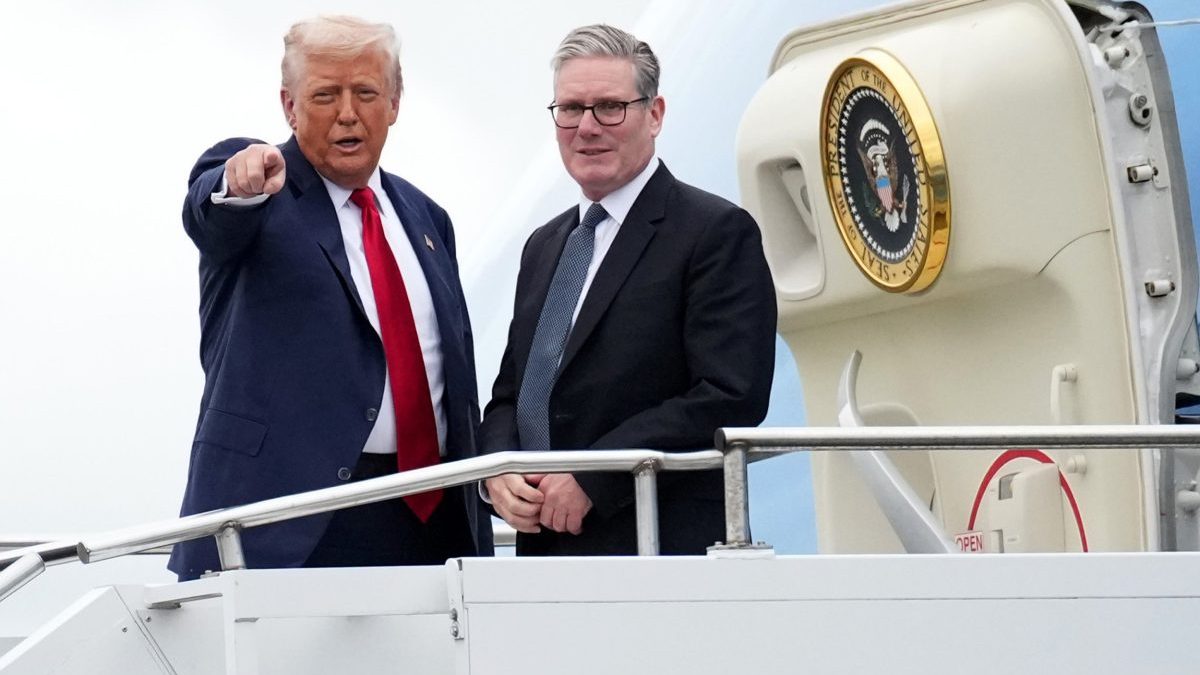Drugs used in cancer treatment, and weight-loss jabs, are examples of medicines that could face price hikes or supply shortages
Health experts in Britain have warned that such tariffs may push up the prices of medicines made outside of the UK, which could in turn impact NHS budgets.
Drugs used in cancer treatment, and weight-loss jabs, are examples of medicines that could face price hikes or supply shortages.
Downing Street said the UK was optimistic that it would secure protections due to the recently signed economic prosperity deal, agreed in May, but there is not yet a commitment to continuing tariff-free trading on medicines.
Trump hinted on Monday that he could spare the UK from heavy-handed levies.
Asked by reporters whether his plans for tariffs on medicines would affect the UK, the US President told reporters: “We will be announcing on pharmaceuticals sometime in the very near future.
“We have a very big plan on pharmaceuticals. We want to bring a lot of the pharmaceuticals back to America, where they should be.”
He added: “But you also have a good pharmaceutical business – we’ll be dealing with you on pharmaceuticals also – and we certainly feel a lot better with your country working on pharmaceuticals for America than some of the other countries that were… with the relationship we have, you would not use that as a cudgel. You wouldn’t be using it as a block.”
Industry experts said that any move that could disrupt trade and therefore push up the price of medicines in the UK would threaten NHS budgets.
Others have argued that it is too early to know the kind of impact any tariffs would have.
Henry Gregg, chief executive of the National Pharmacy Association, warned that any disruption in the supply of medicines could be considerably damaging for patients.
“Medicine shortages and problems in the supply chain can be devastating for patients whose health depends on a reliable and predictable supply of medication,” he said.
“It’s well known that the UK has one of the lowest drug budgets out of many similar countries, with the latest NPA analysis showing the UK paid more than three times less for its medicine supplies than the US,” he added.
“Ongoing speculation about tariffs and other trade rules has already caused uncertainty for the UK medicines supply chain, which is complex and dependent on many international factors, including events in the US.
“It remains to be seen what impact any possible tariffs could have on patients and pharmacies, who are at the sharp end of a very complicated and potentially vulnerable supply chain, but we need reassurance that steps are being made to protect them.”
Tariffs are expected to increase the cost to US drug companies of importing vital ingredients, which could push up the prices of the pharmaceutical products they in turn supply around the world.
Most of the UK’s bulk supply of generic medicines – which many companies can manufacture once a patent expires – comes from the EU and Asia.
But the US is still crucially important for certain drugs that cannot be bought elsewhere, especially the latest branded medications.
European-based multinational firms could also end up hiking their prices – since tariffs would make it more difficult to sell to America, and they may face extra production costs if they have operations in the US.
Health experts also warned that tariffs could push up the price of the drugs produced by European-based multinationals – since they face tariffs in selling to America and extra production costs for any operations they have going on inside the US.
Trump’s plan is designed to incentivise US firms to buy domestically and encourage businesses to move their operations to the US.
The Prime Minister’s official spokesman said: “We secured UK preferential access to the US market for pharmaceuticals in the case of new US tariffs in the future, and we’ll absolutely continue to work closely with the United States to get the best deal for the industry and deliver benefits for both our countries.”
A Government spokesperson said: “The UK has well-established ways of managing the cost of medicines and clear processes in place to protect against risks to supply. Our trade agenda would never stop this.”

